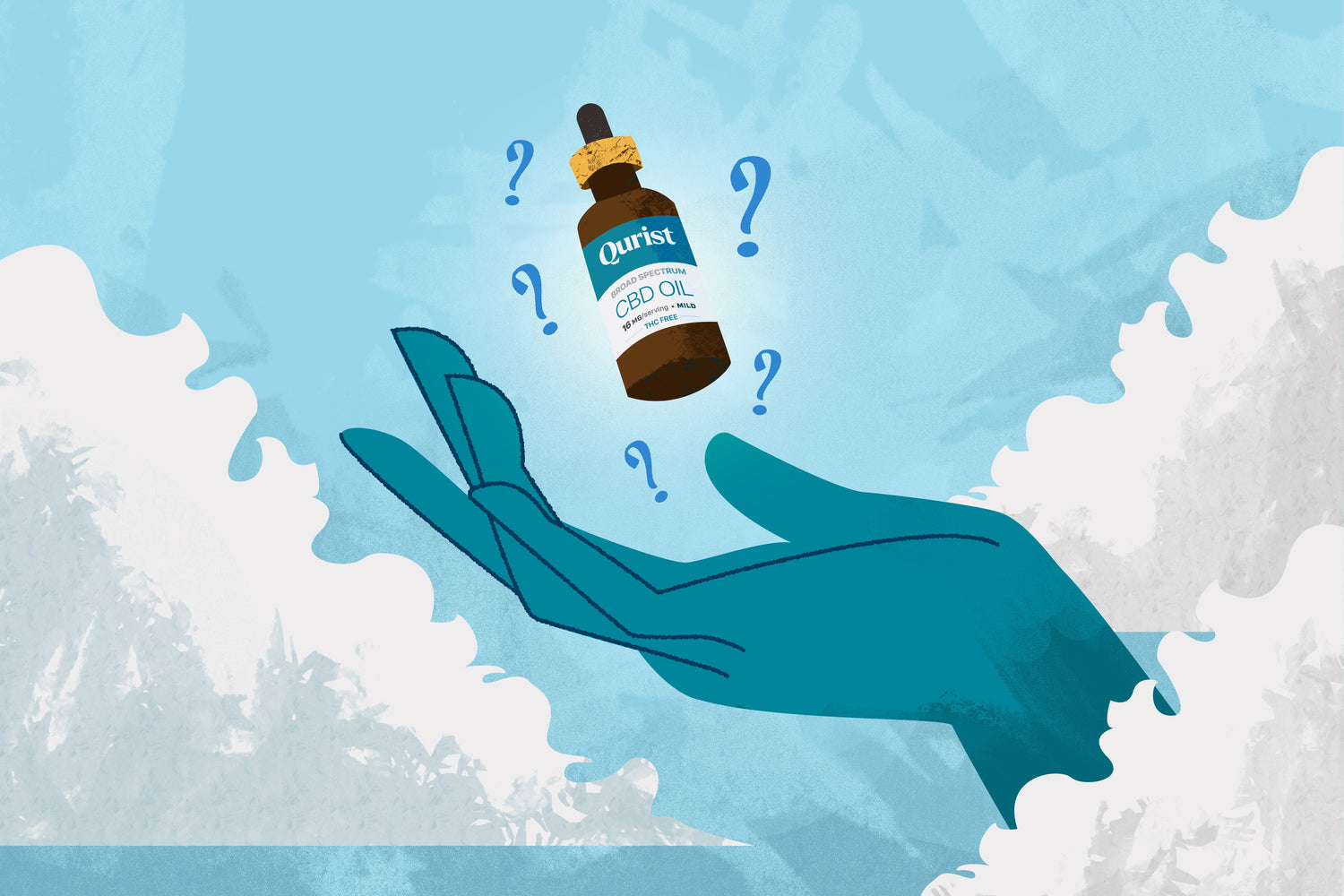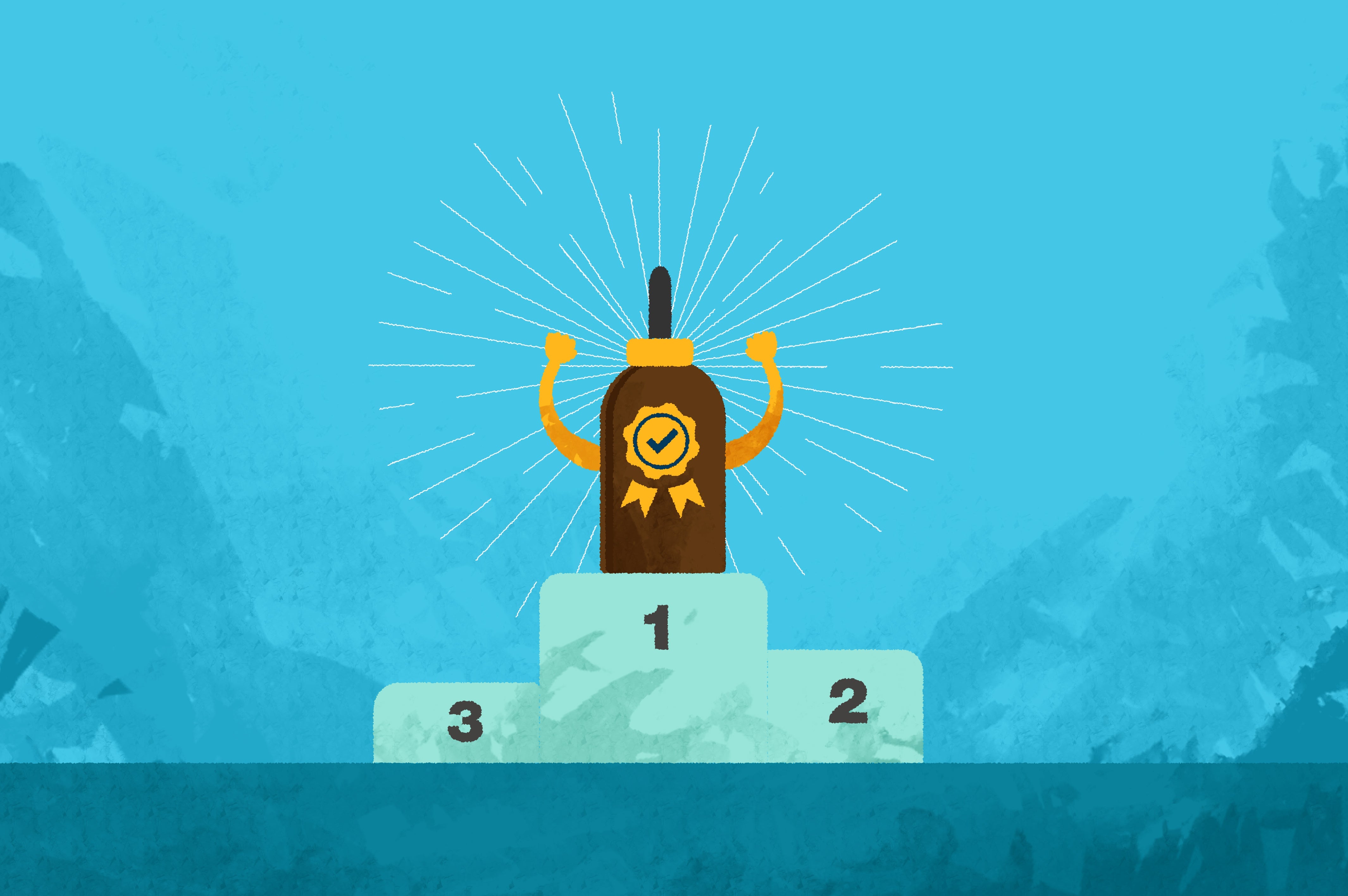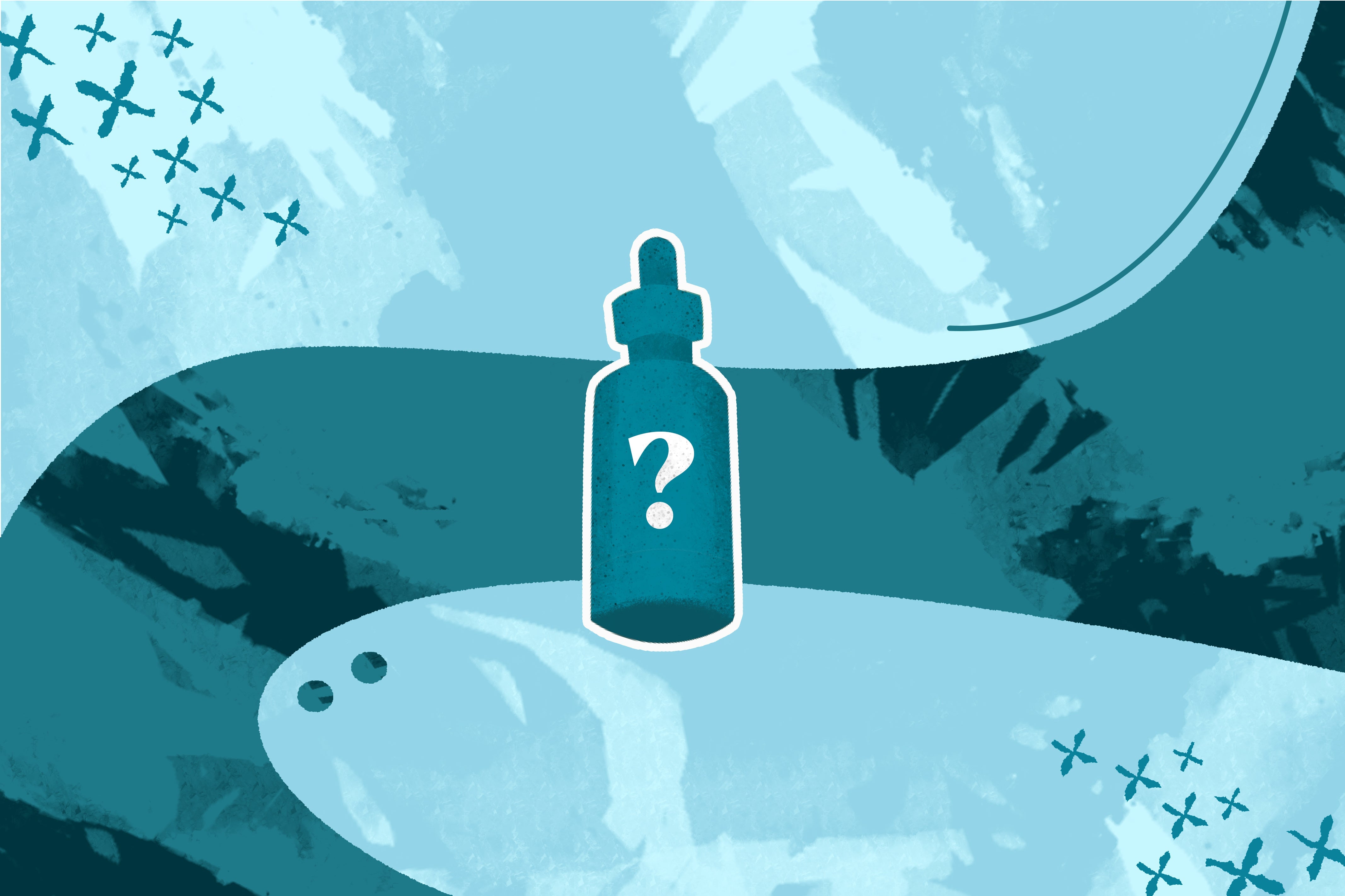From being nowhere to absolutely everywhere in an incredibly short span of time, CBD has taken the global market by storm. Although this traction helped a lot of facts about CBD come to light, it also led to the creation of a host of myths and uncertainties around it. For your journey with CBD to be as seamless as possible, the Qurist team brought down the gavel on what is fact and what is fiction when it comes to using CBD.
CBD, one of the many components of the hemp plant, of late has become a buzzword especially within the medicine and “wellness” community. However, its rapidly rising popularity has led to a lot of mis-information spreading like wild-fire. The available information is often confusing and polarised. It seemed imperative for the Qurist team to differentiate the myths from the facts as you delve into your journey with CBD.
CBD makes you sleepy.
Not true.
CBD soothes anxiety and relaxes the body, which can be great for helping you catch more Zs but such an interaction will not directly put you to sleep. Curiously enough, a study in 2014 instead suggests that CBD could conversely, act as a wake-promoting agent. Think of CBD as the disciplined buddy who’s helping you maximise your healthy sleep pattern by pushing away mental(anxiety, stress etc.) and physical discomfort (like joint pain) to help you get what you need - some sweet sleep.
Since hemp is from the same family as the marijuana plant, CBD is sketchy and not safe.
A myth!
CBD is non-intoxicating and non-psychoactive. It is mostly derived from the hemp plant which is heavily regulated to ensure negligible levels of THC- the high inducing compound found in marijuana.
In 2017, the World Anti doping Agency (WADA) removed CBD from its banned substances list. To further clean up its rep, the World Health Organisation (WHO) declared that naturally occurring CBD is safe and well tolerated in humans and is not associated with any public health effects. It goes on to say that, “In humans, CBD exhibits no effects indicative of any abuse or dependence potential.” These recent moves have helped athletes benefit from CBD usage provided they monitor the negligible levels of THC in the products they use. A monumental development though has been FDA approving Epidiolex, a CBD based medication.
We would never spot CBD for being a magic potion with zero side effects. It's Important to understand that in rare cases, at very high doses, CBD can react with other medicines “by the exact same mechanism that grapefruit juice does,” Harvard Health adds.
All CBD products are made the same way.
Definitely not.
Before heading out and investing in a CBD product, put on your Sherlock deerstalker cap and find out both - if it's the real deal and if it's safe. Check for the concentration and whether it's organic, vegetarian/vegan friendly, allergen tested, hazardous bacteria tested, GMO free - some things we have made sure of for Qurist's products.
Make sure you check for clear labelling, testing information, stability, extraction methods as well as tests for solvents, pesticides, heavy metals and fillers. All CBD products are not made the same way. Some sellers also try to pass off hemp based products like hemp seed oil as CBD oil, make sure you go over the content on the product packaging very thoroughly before making your purchase.
They further pan out across three availabilities - full-spectrum CBD products, broad-spectrum CBD products and isolate CBD products. Both full-spectrum and broad-spectrum CBD products use a full/broad range of cannabinoids as well as other compounds found in hemp plants. The presence of these compounds help promote the “entourage effect”, the major difference between full-spectrum and broad-spectrum is that the former contains some trace amounts of THC while the latter does not. Isolate CBD products on the other hand have CBD as the active ingredient and no other cannabinoids as a result of which you will not benefit from the entourage.
When it comes to CBD, more is better.
This is on the Myths’ List.
CBD affects different people differently. It’s important to understand that the dosage and the usage for optimising the benefits of this compound is as unique as its user. However, it is imperative that you start with a smaller dosage and increase it as per your body, till you find your sweet-spot. The trick remains in finding this optimal point and maintaining it.
How you take your dosage also affects the changes you observe, for example: instead of gulping a spoonful of CBD oil, which could cause the oil to pass straight out of your body from your digestive tract, some users tried swishing it around the mouth which yielded better results from the same dosage. For better understanding the right dosage for you read our blog article here.
CBD is just another Marketing Scam.
Simply untrue.
Granted, 2019 saw CBD become a buzzword and it ended up being put into way too many products. But these applications don’t mean every application of CBD is unnecessary. We agree that there isn’t a need for CBD in all products imaginable but this in no way should not lessen the importance of its legitimate applications.
CBD affects other medication.
True.
CBD can lower blood pressure. It can also help out its sedative-medical friends which target the central nervous system, like Valium, amping up the sedative’s effect. Very high doses of CBD might also increase the potency and toxic traits of other drugs by inhibiting enzymes in the liver which break them down. Always be cognizant of the medicines you’re introducing to your body and how well they pair with CBD. We recommend you have a sit-down with your healthcare provider if you’re on a prescription. If speaking to your physician about CBD is not a viable option, try out the grapefruit test. CBD and grapefruit react chemically quite similarly, to the body. In case your doctor is not well acquainted with CBD try asking him/her how your body and your prescribed medicines would react to grapefruit.
Hemp Seed Oil and CBD Oil are the same.
Another myth on our hands.
It is true that they can both be derived from hemp but they’re really anything but the same. While hemp seed oil is made exclusively from the seeds of hemp plants - which also contain beneficial nutrients like omega fatty acids and many vitamins and minerals - CBD oil is instead extracted from flowers, stalks and leaves of the hemp plant and offers significantly different benefits. Understandably confusion might arise as they can both be derived from hemp, however to ascertain that the product you're purchasing does in fact contain CBD make sure you closely inspect the packaging of the product. For CBD oil, the ingredients list would definitely carry “CBD” or “cannabidiol” whereas for Hempseed oil the ingredients would read “hemp oil” or “hempseed oil”. Be wary of hemp oil being marketed as CBD oil, always read the label carefully.
CBD is an intoxicant.
Another myth.
CBD is not an intoxicant. Unlike THC, CBD will not make you feel stoned. CBD and THC use different mechanisms when introduced to the body. It is safe to say - CBD is not psychoactive like THC. CBD does not activate the CB1 receptor in the brain the way THC does, it also means that CBD does not affect your consciousness and awareness the way a high from THC would. CBD inhibits the FAAH enzyme, responsible for breaking down anandamide leading to increased anandamide levels. Think of anandamide as a natural feel-good chemical that activates CB1 in our brain but to a much lesser degree than THC. All mad-science words aside, picture the happiness quotient from CBD akin to a nice, warm hug - especially in the middle of this pandemic - not too shabby we’d bet.
CBD has health benefits.
True!
The endocannabinoid system was elected by our body to regulate a host of processes from pain to forming memories. CBD’s association with this system naturally affects these processes. Since there is always newer research underway, there is a whole lot that we are yet to discover about cannabinoids and how they work but presently available reports suggest that CBD can relieve symptoms of anxiety and stress, pain and inflammation,improve sleep, reduce seizures and tremors and possibly much more.

CBD is addictive.
A myth.
On the contrary CBD is seen as a solution for de-addiction. Clinical trials and research shows that CBD reduces addictive potential of substances, reduces withdrawal symptoms and even cravings(for cigarettes, marijuana, heroin, alcohol etc.) . Addiction is often dictated by a craving for dopamine and depends on not just your genetics but also your environment and life experiences which translates to every individual having a different susceptibility to addiction. Though THC can be addictive since it directly affects dopamine release, CBD has a very different mechanism of action. CBD does not mess around directly with CB1 receptors, instead its interaction with D2, dopamine receptor, reflects how CBD could in fact, reduce reward seeking behaviour.
CBD does not have the same effect on everyone.
It’s true.
CBD does not work exactly the same way for each individual. It largely depends on your metabolism, biochemistry and genetics. Since we all have a unique biological makeup, the operation and interaction of our endocannabinoid system (the system in your body that reacts to cannabis compounds) with CBD are just as unique. In fact, there’s a fascinating study that found a rare genetic mutation caused some people to naturally produce more endocannabinoids which helped in making them less prone to anxiety. However, due to this they wouldn’t necessarily experience the benefits of introducing low amounts of compounds like CBD into their body. The bottom-line here is that - there isn't a one-size-fits-all way with CBD. Nurture your relationship with CBD till you find the usage that optimises the benefits for your body.
This Article is Medically Reviewed by Dr. Parul (BAMS)
About Dr. Parul
She has knowledge of Ayurveda and 15 years of experience practicing as a general physician, She love to interact with patients, treating their various health issues, counseling them, and advising them to the best of her ability.
She has a special interest in treating pain-related issues, diabetics, and mental health-related disorders.
She is currently working with Qurist a trusted medical cannabis company.





Leave a comment
This site is protected by hCaptcha and the hCaptcha Privacy Policy and Terms of Service apply.